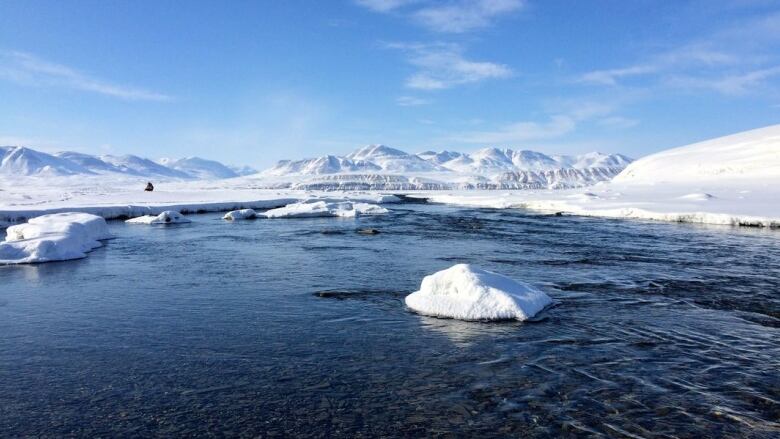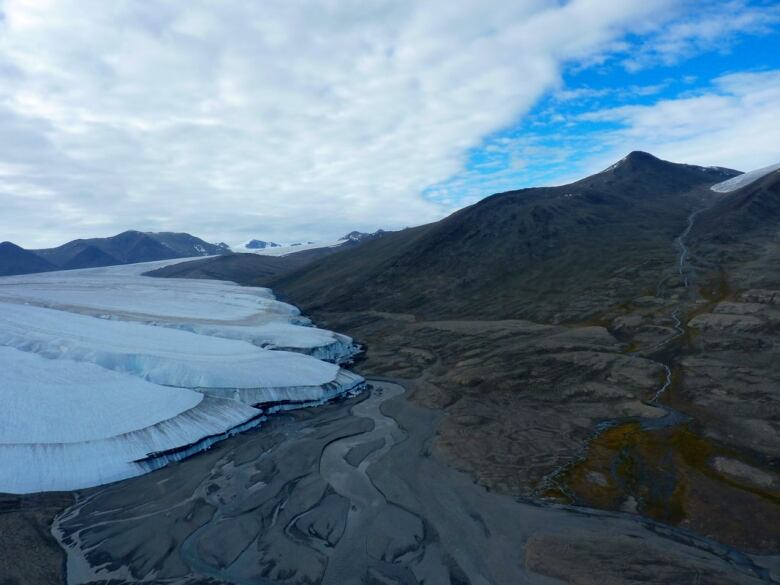Arctic lake's ecosystem changes after 1 degree of warming, study shows
Fish get smaller in Lake Hazen while sediment and contaminants increase

Canadian scientists thought one of the Arctic's largest lakescould handlesmall changes in climate, but it turns out that's not the case.
A study published recently in the journalNature Communications,found that it only took 1 C of warming in the last 18 yearsto change the ecosysteminLake Hazen on Ellesmere Island in Nunavut which holds more water than any other lake in the High Arctic.
"We think on a global average we're going to see at least one and half, two degrees, maybe even more, warming by the end of this century," explainedIgorLehnherr, the study's lead researcher from the University of Toronto.
"We saw here, in this particular example, that one degree was sufficient to have widespread impacts throughout the entire watershed or ecosystem," he said.
The scientists used sediment cores to determine that what's happened to the lake in recent years is unprecedentedwithin at least the last 300 years.

Beginning around 2007, the glaciers feeding the lake started melting more in the summer than they were growing in the winter.Meltwater and sediment flowinto the lake at 10 times the historic rate, makingthe water cloudy and affecting its quality.
Contaminants, like mercury, previously contained in the ice and permafrost, are now melting into the water as well, the study said.
Lake Hazen is also becoming ice-free more often, which means more light penetrates intothe lake, allowing for algae to grow in placesit never did before.
'Skinnier' Arctic char
Arctic char, the lake's only fish, are looking skinnier, and the researchers think this might be because these fish huntvisually and they're having trouble seeing in the cloudy waters.
Lehnherr says this may be a period of transition and they may bounce back, and right now, there is no data saying their population is declining as a result.

The researchers studied Lake Hazen because of the historical data available for the lake researchers have been camping by the lake at the northern end of Canada's most northern island since the 1950s.
Due to its size, they also thought it would be less affected by warming than smaller lakes and ponds.
"It's a bit of a sentinel for what's happening throughout the Arctic in many respects," Lehnherr said.
"If we're seeing water quality declining and we're potentially seeing the fish get skinnier,it's not just Lake Hazen where there are few visitors, but it could have broader implications for other parts of the Arctic ... where there may be lakes that are being used by local communities to a much greater extent."
He said he believes other Arctic lakes are also fragile ecosystems, which are likely also sensitive to warming.
With files from the Canadian Press












_(720p).jpg)


 OFFICIAL HD MUSIC VIDEO.jpg)
.jpg)



























































































